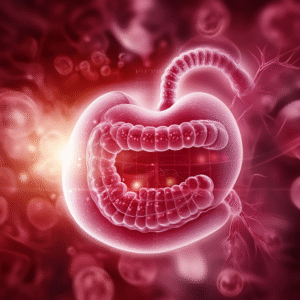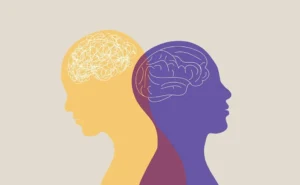Stories of seemingly inexplicable recoveries from serious illnesses—or “miraculous” remissions—have appeared in both historical accounts and modern times. Although these cases are often regarded with a mixture of awe and skepticism, they consistently draw attention to questions about how the body’s natural defenses and psychological factors might work together. While some people consider such remissions purely anecdotal, others—both within and outside the medical community—ponder whether certain combinations of mental, emotional, and physiological processes can trigger the body to heal in ways that defy conventional explanations. Below is an exploration of how the mind and immune system may interact, contributing to these rare but compelling occurrences.
The Nature of Unexpected Recoveries
In many discussions, an unexpected recovery occurs when a patient’s condition dramatically improves or their tumor regresses without a clear medical explanation. Some believe these events result from unknown biological mechanisms that operate in exceptional circumstances. Others suggest that psychological influences, such as stress management or strong social support, play a vital role.
Because these remissions are not common, large-scale research is often challenging. However, anecdotal evidence and small case series hint that the relationship between mind and body could be far more dynamic than is typically assumed. Rather than dismissing extraordinary recoveries, some researchers see them as opportunities to learn more about how the immune system can be “activated” or supported to fight illnesses once thought unstoppable.
The Body’s Defense: The Immune System at a Glance
At the core of every remission, miraculous or not, is the human immune system. This complex network of cells, tissues, and organs defends the body against pathogens and aberrant cells. When working effectively, it identifies and destroys cells that could turn cancerous. However, genetic predispositions, external toxins, chronic stress, and other factors can undermine its efficiency, allowing malignant cells to multiply unchecked.
Several key players are often discussed in the context of remissions:
- T-Cells: These white blood cells coordinate the immune response and can directly target abnormal or infected cells.
- Natural Killer (NK) Cells: As their name suggests, NK cells can kill tumor cells or virus-infected cells without prior activation.
- Cytokines: These signaling molecules help immune cells communicate. An imbalance can lead to excessive inflammation or a weakened immune defense.
- Antibodies: Produced by B-cells, antibodies bind to specific antigens to help flag threats for destruction.
In unexpected recoveries, some observers suspect that these immune components may be functioning at unusually high efficiency or are “reawakened” by a particular physiological or psychological trigger.
Psychoneuroimmunology: Bridging Mind and Body
Psychoneuroimmunology (PNI) is a field that studies how psychological factors, the nervous system, and the immune system interconnect. Researchers in this domain aim to explain how emotions and thought processes might influence immune responses. While PNI does not claim to explain every case of extraordinary healing, it provides a theoretical framework for understanding why certain mental or emotional states could bolster the body’s ability to ward off disease.
For instance, chronic stress is known to release hormones such as cortisol, which can suppress immune function. Conversely, lower stress levels and positive emotions may help maintain a more robust immune response. Studies exploring meditation, relaxation exercises, and stress-management programs have found modest but notable improvements in immune markers—though these do not always translate into complete remissions for serious illnesses. Nevertheless, these findings highlight the potential of the mind to modulate the body’s natural defenses, possibly creating conditions conducive to better outcomes.
The Stress Factor
Stress is a pivotal element in many discussions of disease progression and healing. When a person experiences prolonged stress, the body stays in a heightened state of alert, which can impair various bodily systems over time. Among other effects, chronic stress can:
- Increase inflammation, which has been associated with a variety of health issues.
- Disrupt hormone balance, potentially affecting the growth and spread of abnormal cells.
- Reduce sleep quality, thereby weakening both mental acuity and physical resilience.
In cases of unexpected remissions, some individuals report a significant reduction in life stress—maybe through a change in perspective, improved relationships, or a shift in lifestyle. This stress relief could theoretically create a more favorable internal environment for the immune system to identify and attack harmful cells. Although no direct cause-and-effect relationship can be established from single-case anecdotes, the repeated appearance of stress reduction in many survivors’ stories signals an area worth deeper scientific exploration.
Positive Emotions and Immune Function
Another avenue in which mind and body may intersect involves the influence of positive emotions—like hope, gratitude, and love—on immune regulation. While it may sound overly simplistic to say that “happiness heals,” evidence suggests that a hopeful or positive mindset can alter certain biomarkers. For example, some research indicates that positive emotional states might lead to reduced levels of stress hormones and heightened activity of immune cells like NK cells.
Notably, these outcomes are not guaranteed, and they certainly do not imply that a person who stays optimistic will always beat cancer or avoid severe illness. Instead, what they do imply is that adopting a supportive emotional climate could potentially tilt the odds, even if slightly, in favor of better immune surveillance. In rare instances, this tilt—combined with other factors—might be enough to spark an unanticipated remission.
The Role of Diet and Nutritional Psychology
Diet frequently appears in discussions of remarkable recoveries. Some individuals who experience these outcomes report radical changes in their eating habits—such as reducing processed foods, increasing vegetable and fruit intake, or following specialized dietary protocols aimed at bolstering immune function. Nutritional psychologists study how food choices affect mood, stress levels, and even cognition, theorizing that certain diets might reduce inflammation or support beneficial gut bacteria, thereby influencing immune health.
When combined with a lower stress load and increased positive emotions, a nutrient-rich diet could serve as yet another component of an integrative mind-body approach. Although diet alone is unlikely to explain the most dramatic remissions, it might act synergistically with emotional wellness and medical treatment.
Anecdotes, Case Studies, and Research Gaps
Because unexpected recoveries defy standard predictive models, they are often relegated to anecdotal status. Yet these stories persist, prompting some investigators to treat them more systematically:
- Case Registries: Certain research initiatives gather case studies of unexplained remissions to identify common patterns—be they psychological, nutritional, immunological, or spiritual in nature.
- Longitudinal Studies: Researchers sometimes follow individuals who adopt comprehensive lifestyle or emotional strategies, tracking their immune markers and clinical outcomes over time.
- Mechanistic Investigations: Laboratory experiments, often involving cell cultures or animal models, examine how stress hormones, neurotransmitters, and immune cells interact.
Despite these efforts, large-scale, controlled trials remain challenging in this area. The rarity and individuality of each remission make it difficult to compile sufficient sample sizes under standardized conditions. Nonetheless, the existing data, however limited, reinforce the notion that a complex interplay of factors could be at work in extraordinary healings.
Consciousness and Belief Systems
Beyond stress reduction and positive thinking lies the broader notion of consciousness, which includes belief systems, meaning-making, and self-identity. Some survivors point to a profound internal shift—described as a change in worldview or spiritual awakening—that preceded or coincided with their unexpected recovery. Such a shift might involve letting go of deeply held resentments, gaining a sense of purpose, or adopting a new spiritual practice.
From a scientific standpoint, these changes can be difficult to measure. However, if such internal transformations lead to sustained lower stress levels, healthier relationships, and more consistent engagement with life, they might indirectly support the immune system. The mechanism could involve consistent positive feedback loops: improved mood leads to better sleep, which stabilizes hormonal balance, in turn bolstering immune function, and so on.
Combining Conventional Treatment and Psychosocial Factors
Another crucial point is that so-called miraculous remissions frequently occur alongside standard medical care. Patients often undergo surgery, radiation, chemotherapy, or immunotherapy before seeing any dramatic improvement. The interplay of medical interventions with heightened immune activity, lowered stress, and potentially beneficial lifestyle shifts could create a perfect storm for remission.
Some integrative oncology centers now encourage patients to combine conventional treatments with support services like counseling, group therapy, meditation classes, and nutritional guidance. The aim is to enhance overall well-being and potentially activate any latent capacity the body has to halt tumor progression. Although outcomes vary widely, proponents argue that even if complete remission remains elusive, these measures can still improve quality of life.
The Placebo Effect and Its Relevance
One facet often raised in discussions of mind-body healing is the placebo effect, wherein a patient’s belief in a treatment—whether or not the treatment is scientifically active—produces measurable physiological benefits. While the placebo effect is not the same as an unexplained remission, its existence reinforces the idea that the mind can initiate real biological changes.
In certain clinical trials, participants given sugar pills experience shifts in blood pressure, pain tolerance, or immune markers comparable to those taking an actual medication. Though the placebo effect has limits and does not fully explain unexpected remissions, it hints at untapped mental pathways that can yield physical results.
Moving Toward Evidence-Based Holism
Critics rightly point out the need for rigorous research to avoid giving false hope or promoting unsubstantiated claims. However, there is a growing consensus that bridging psychosocial factors with immunology could pave the way for more comprehensive cancer care. Encouraging patients to maintain emotional wellness, explore stress-reduction practices, and stay physically active aligns with standard public health advice—and may, in special cases, catalyze something remarkable.
Moreover, studying these “miraculous” events with scientific scrutiny could lead to breakthroughs in mainstream medicine. For instance, if a particular pattern of stress hormones, cytokines, or immune cells repeatedly appears in patients who experience remission, future therapies might aim to replicate or induce that profile in more systematic ways.
Challenges in Validating Extraordinary Recoveries
Despite the promise of investigating these phenomena, several hurdles remain:
- Limited Documentation: Many unexpected recoveries are not tracked meticulously in medical records, making it hard to analyze them retrospectively.
- Varying Definitions of Remission: Some individuals undergo minimal treatment but still improve, while others receive extensive medical interventions before showing remarkable recovery. Defining what counts as a “miracle” can be subjective.
- Relapse Possibility: Some remissions are temporary. Without long-term follow-up, it’s tough to determine whether certain positive changes are permanent.
- Individual Differences: Each human being is genetically and psychologically unique, meaning there is no one-size-fits-all pattern behind unexplained recoveries.
Nonetheless, each documented case can serve as a piece of a larger puzzle, pushing science to consider how psychological well-being and immunological processes might amplify or reinforce one another.
Conclusion: A Realm of Possibility
Unexpected or “miraculous” remissions challenge traditional assumptions about the trajectory of serious illnesses. While they remain rare and difficult to predict, their repeated emergence across different populations and cultural contexts suggests that the mind-body relationship warrants deeper investigation. Fields like psychoneuroimmunology and integrative care initiatives are beginning to examine whether stress reduction, positive emotions, lifestyle adjustments, and a deeper sense of meaning can potentially prime the immune system for more effective disease control.
Although no single factor explains every remarkable remission, a multi-faceted approach—marrying medical treatments with emotional, social, and spiritual support—may nurture the body’s innate defenses more robustly than any one measure alone. For some individuals, such synergy can lead to outcomes once deemed impossible. For others, even if a complete remission does not materialize, the journey itself becomes more manageable and meaningful, underscoring the complex interplay between science, personal belief, and the human body’s extraordinary capacity for healing.


